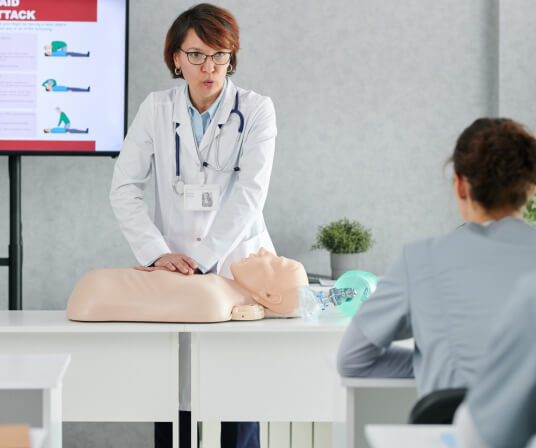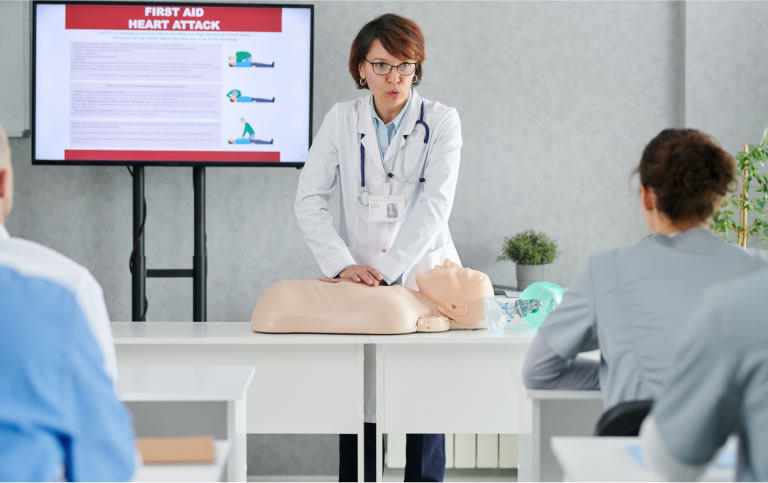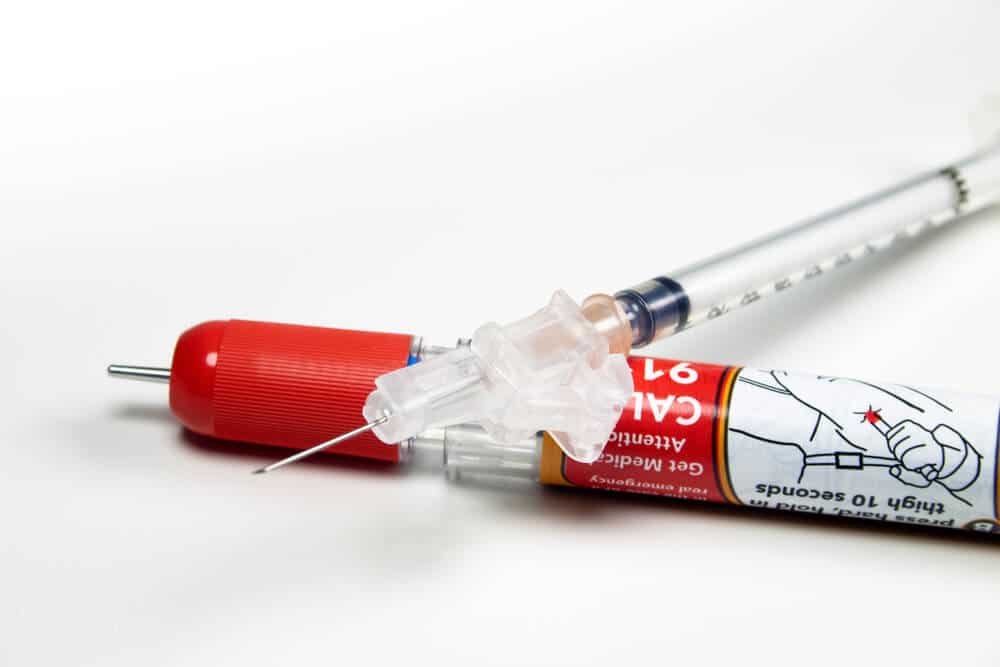Menu
Menu
CPR, First Aid, BLS, ACLS, PALS certifications.


$49.95 $59.85
| Chapters | CE Credits | Validity | Cost | Duration | ECC | Exam Attempts | Wallet Card |
|---|---|---|---|---|---|---|---|
| 32 | — | 2 Years | $49.95 | 2 Hrs | Compliant | Unlimited | Download/Print/Mail |
When a person has an allergy, he or she experiences an immune response to a substance that is usually not harmful. An allergy emergency may occur if a person is exposed to this allergen. An allergic reaction may become severe if not treated in a timely manner.
People may be allergic to a variety of different things such as:
This is a severe, life-threatening allergic reaction. It occurs suddenly, and within seconds or minutes after contact with the allergen.
A reaction of troubled breathing can cause obstructions in the airway and even lead to shock. Anaphylaxis requires immediate medical treatment, including the epinephrine injection and a trip to the hospital.